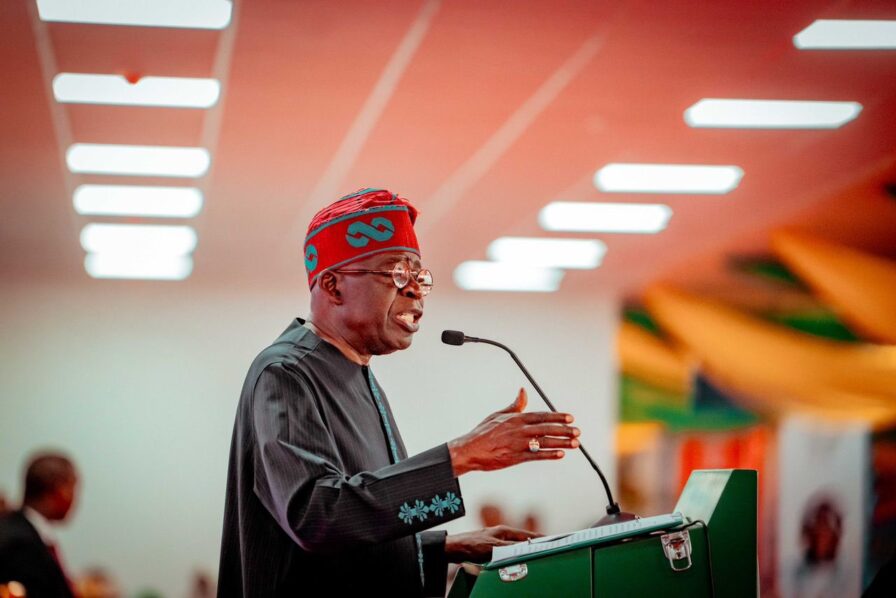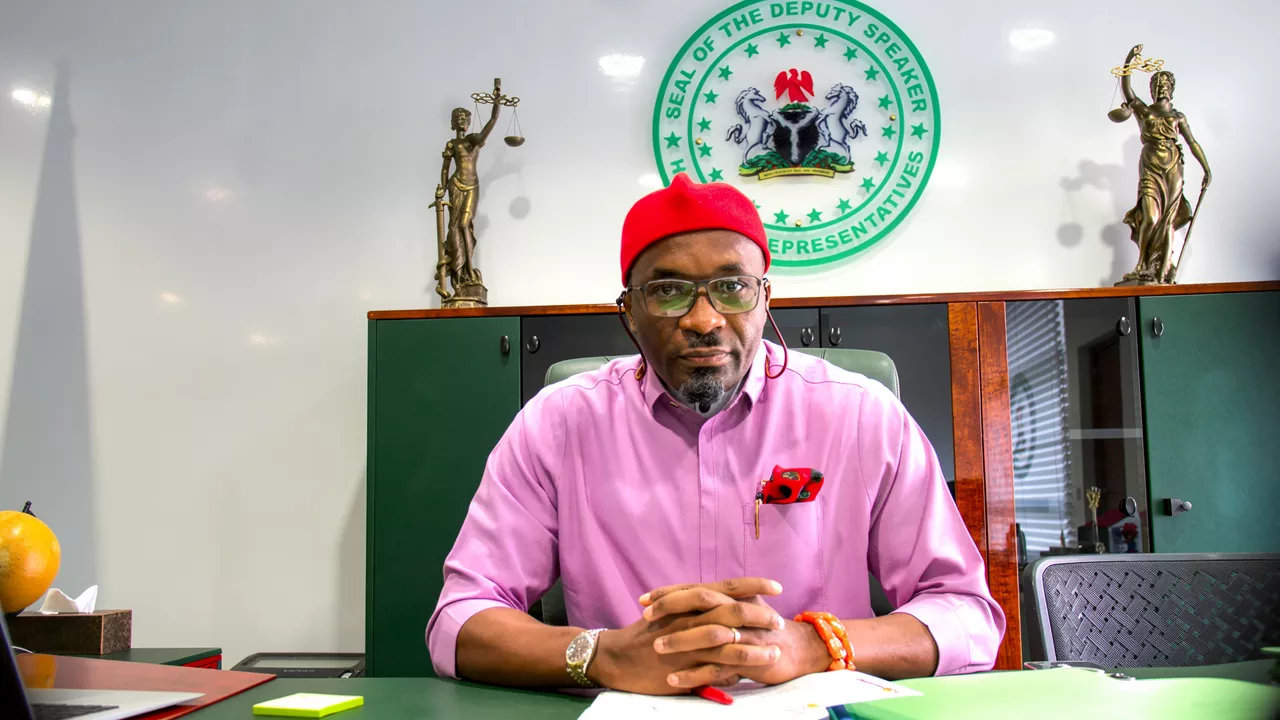
The prevailing anger in the country, exacerbated by socioeconomic hardship, has been blamed on the federal government’s failure to establish an effective system for delivering palliatives to most Nigerians. Worse still, inadequate oversight by legislative bodies and other government agencies allows a select few to exploit the situation, undermining the government’s efforts, AZIMAZI MOMOH JIMOH reports.
Despite N4.5 trillion spent on palliatives in the last 12 months by the Federal Government, increasing rate of poverty and hardship among Nigerians has raised concerns about the transparency of the policy.
The Guardian investigation revealed faulty policy implementation, weak monitoring system and poor accountability are responsible for preventing most poor Nigerians from accessing the intended benefits of the noble intervention.
President Tinubu had in July 2023 announced government’s first-set of palliatives, which include N100 billion to acquire 3,000 units of 20-seater CNG-fuelled buses, N200 billion to boost agriculture production, N75 billion for manufacturers, and N125 billion for micro, small and medium-sized enterprises, and the informal sector.
Additional palliative measures involved releasing of N5 billion to each of the 36 states, as well as N315 billion meant to pay every federal worker N35,000 for six month; payment of N75,000 to 15 million households at N25,000 per month for three months (October and December 2023), totalling N1.13 trillion for the period; the controversial N70 billion palliative earmarked to lawmakers to support “the working conditions of National Assembly members”, and the recent N1 trillion palliatives of the Federal Government to Nigerians.
However, during the same period of distributing these palliatives, poverty worsened in the country as the headline inflation rate increased to 33.95 per cent from the 22.41 per cent in May 2023.
Data from the National Bureau of Statistics (NBS) showed that on a year-on-year basis, the headline inflation rate was 11.54 per cent points higher compared to the rate recorded in May 2023, which was 22.41 per cent.
Worse still, the country’s debt increased substantially as the Debt Management Office (DMO) put Nigeria’s total public debt at N121.67 trillion within three months.
This figure represents an increase of N24.33 trillion or 24.99 per cent from the N97.34 trillion as of December 2023. In an interview with The Guardian, former National publicity Secretary of the Peoples Democratic Party (PDP), Kola Ologbodiyan, said the failure of the N4.5 trillion palliatives initiated by the Bola Ahmed Tinubu administration since last year, as well as the ones initiated by the preceding administration of Muhammadu Buhari, failed because of misplacement of priorities.
He said: “Starting from the Trader’s Money Scheme of the Buhari’s administration, palliative programme has become a euphemism for looting. As such, it has failed to address the nation’s economic challenges. Nigerians are not lazy, and they will always work hard to earn a living, no matter the conditions and environment. Therefore, the government at all levels should create an enabling atmosphere that would allow Nigerians to thrive in their vocations.”
Ologbodiyan continued: “Most importantly, the government should confront the challenges of insecurity, power generation and distribution headlong. Until and unless we attain success in these areas, distribution of funds in terms of palliative will not take us out of the current excruciating pains.”
Bayelsa State Governor Douye Diri, had recently condemned the practice of depending on palliatives as solutions to people’s economic hardship. He said: “Offering of palliatives was not the lasting solution to the economic hardship in the country.”
He said though he was not against palliatives, he was more concerned with putting in place the right structures and systems to address economic challenges.
Speaking to The Guardian, member of House of Representatives (2011- 2023) and former chairman of the committee on privatisation, Tajudeen Yusuf, who reviewed the issues emerging from the management of the country’s political economy in the last one year, submitted that governance has been characterised by lack of coordination, confusion, and planning.
Yusuf said: “There is one major policy somersault; it is a good thing to do, but was not properly articulated and managed, it is subsidy removal. The mistake took away whatever gain they would have gotten.
“I’m not opposed to the removal of subsidies on petroleum products, I’m an economist. But there are processes for removal of subsidies on fuel. The president ought to have known that there’s no country in the world that doesn’t subsidise at least a particular sector. So, as he was planning to remove subsidies on petroleum products, he should have considered putting subsidies on either education, health or even electricity,” he stressed.
The former Reps member also expressed concerns about the decline in the quality of representation in the National Assembly, a development Yusuf noted has affected the value of governance to the people of Nigeria.
According to Yusuf: “The 10th Assembly to me, has not been able to be what it should be because of the manner it came. And it’s unfortunately too, I’m sorry, the quality of men and women who are being recruited from Nigerian society, so it’s a reflection of where we are as a people, our values. So, they didn’t come from Ghana, they are Nigerians. The quality has been on the decline. Every year, those who are coming are well ill equipped.”
An Abuja-based human right civil society organisation, the Human Rights Writers Association (HURIWA), believed that the administration of palliative by the government has been marred by corruption going by the multi billion Naira scandals that were discovered at the Federal Ministry of Humanitarian Affairs.
It took a critical look at the issue of the failing economy and submitted that, “the microeconomic dynamics are not being adequately engineered by the Central Bank of Nigeria (CBN). The governor of CBN is simply experimenting with all kinds of measures which barely work.”
National coordinator of HURIWA Emmanuel Onwubiko, in an interview with The Guardian, lamented that it is very tragic that Naira is the worst currency in the world now, pointing out that the key factor to the ballooning poverty and the costs of living crisis in Nigeria are the devaluation of the Naira in exchange to other international currency and also the heavy adjustment to the pump price of petrol that was affected by President Bola Ahmed Tinubu upon assumption of office on May 29, 2023 amid growing poverty rates in Nigeria.
According to him, “the inflation that is obviously out of control is also occasioned by capital flight, corruption in government offices and the total absence of transparency and accountability in governance.”
Equally disturbing is the failure of the checks and balances system at federal and state levels, a situation most observers noted is such that the legislature has become praise singers to the executive arm of government as opposed to putting it in check against impunity, corruption and economic leakages.
A serving National Assembly principal officer observed that the situation is worse at the state level where state legislators, according to him, are in slavish loyalty to governors.
He said such loyalty is producing a very negative effect on the progress of the nation.The federal lawmaker stated: “You can imagine that some governors will take advantage of the firm grip they have on state assembly members to do things very injurious to the Constitution, the state and the nation at large. I draw your attention to the example of the financial autonomy we are seeking for local governments. Chances are that very few houses of assembly will endorse the bill if their governors are not in approval. The same thing applies to the failure to check against abuses.
He continued: “The issue of palliatives you raised is even another area where the executive arm of government in the state should be checked. How are we sure that even the N5 billion given to each state by the President was not abused? Who is supposed to check against that? The State Assembly, of course.”
It has also emerged that in the National Assembly and most states assembly, across the country, there is increasing efforts to diplomatically subdue voices against biting hardships through subtle rejection of motions and prayers initiated against abuse of funds and other financial breaches.
Many of such motions abound in both chambers of the National Assembly awaiting approval of presiding officers before they can be scheduled for debate.The Senate, recently rejected a motion that sought investigation into alleged diversion of security and defence funds for building of universities and purchase of Yacht.
According to a former principal officer in the National Assembly, the palliatives offered opportunities for many to abuse trust, a situation he said has become very prevalent in government circles.
The ranking lawmaker noted that the nation’s debt would keep on increasing without positive effects on the lives of the people. While attributing the failure of governance to declining quality of the checks and balances system, Ologbodiyan charged the National and State Assemblies to wake up to their responsibilities of effecting checks against any of such abuses in government.
He expressed worries that as the fortunes of democracy continued to dwindle in Nigeria and effects of governance on the people continue to reduce, insecurity, which has resulted in hundreds of deaths in the last few months, would worsen.
He said: “The worst dimension of failure of governance is when the legislature begins to fail in performing its most important role, which is to check abuses. It is sad that the current National Assembly is yet to wake up to that responsibility.”
Ologbodiyan charged the leadership of both chambers of the National Assembly to summon the courage against political compromise and take a stand against mounting cases of impunity and abuses in the form of diversion of public funds.






